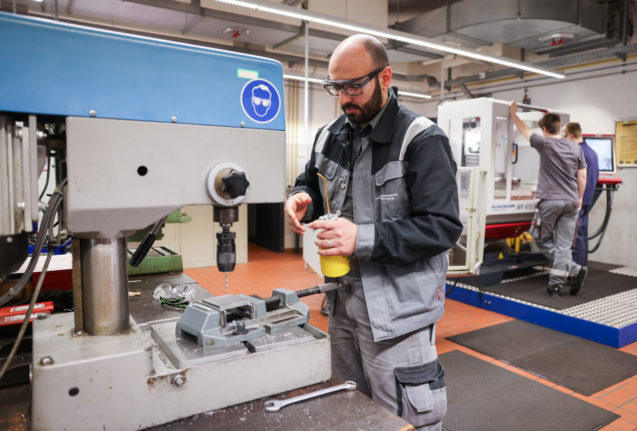Around 1,300 new startups have been set-up in Germany in the first half of 2023, according to a new report, with Berlin, Hamburg and Munich holding their positions as the three top locations for entrepreneurs.
The data released by the German Startup Association (DSV) shows a 16 percent uptick in the number of new companies being founded nationally this year.
In particular, new startup registrations jumped by 40 percent in Berlin, with 262 new startups entering the market, and by a similar percentage in Hamburg, where 90 startups were launched over the six-month period.
Munich, meanwhile, saw 95 new startups founded from January to June, representing an increase of two percent.
However, the Bavarian capital continues to punch above its weight in the business community compared to its relatively small size. In the twelve months between July 2022 and June 2023, there were 12.6 new startups founded per 100,000 – more than Berlin’s 12.3 per 100,000 people.
Somewhat more surprisingly, the university towns of Karlsruhe, Darmstadt and Heidelberg all appeared in the top 5 destinations for startups per capita.
READ ALSO: EXPLAINED: The German regions attracting startups
According to the DSV, this is largely because of the symbiosis between research facilities and entrepreneurship, which shows the potential to create startup hubs outside of cities like Berlin and Munich.
“In order to make better use of our strength in research, we need to make the topic of entrepreneurship more prominent in universities and lower legal and bureaucratic hurdles for setting up companies,” said DSV CEO Christian Miele. If this succeeds, “we will see many more startups at German universities”.
Post-pandemic recovery
The sharp increase in the number of companies launched at the start of the year could be a sign that Germany’s startup scene is recovering after the tough pandemic years.
“After the slump in startups in 2022, this is an important signal for the economic and innovative strength of our country,” said Miele.
In particular, businesses in the tourism sector are once again taking off after years of travel restrictions and uncertainty. In a climate of renewed optimism, startups in this sector soared by 111 percent.
READ ALSO: ‘Lack of diversity is a problem’: What it’s like to work at a Berlin tech startup
Other clear winners in 2023 include the mobility sector (+ 30 percent), grocery companies (+ 28 percent) and startups in the software industry (+ 23 percent).
On the other side of the coin, the number of new blockchain and crypto companies slipped by 63 percent, with environmental tech startups and agriculture businesses dropping by 18 and 13 percent respectively.
Responding to the data, Miele welcomed the spike in startups but warned that the trend was not “self-sustaining”.
He called on the government to quickly implement the policies in its Startup Strategy, which include easier access to both public financing and venture capital and measures for supporting startup founders with migration backgrounds.
“If we make Germany the world market leader for startups, it can give our limping economy a real boost,” Miele added.



 Please whitelist us to continue reading.
Please whitelist us to continue reading.
Member comments